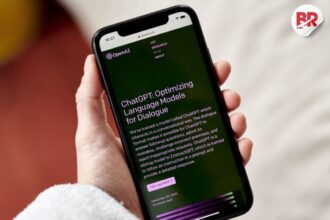
OpenAI has launched a new feature in ChatGPT called “Study Mode”, specially made for students. This mode helps with learning, revising, and exam preparation. The best part? It’s completely free in India.
Also See: Australia Takes Bold Step to Shield Children from Online Harm by Banning YouTube for Users Under 16

What is Study Mode?
Study Mode is like having your own personal tutor inside ChatGPT. It gives students:
- Step-by-step help with math and science problems
- Summaries of long chapters or notes
- AI-generated quizzes to practice
- Easy explanations of tough topics
- Study goals and session tracking
It creates a focused learning space, much like a virtual classroom.
How to Use Study Mode in India
Using it is very simple:
- Open the ChatGPT app or website
- Log in to your account
- Look for the “Study Mode” banner or icon
- Click it and choose your subject (like English, History, Physics, etc.)
- Start asking your questions!
No payment or subscription is needed. It’s free for everyone in India.
Best Ways to Use Study Mode
Here are some smart tips to use Study Mode well:
- Split your syllabus: Ask ChatGPT to divide your topics into small lessons
- Take quizzes: Test yourself regularly
- Ask for simple explanations: If a topic is hard, ask ChatGPT to explain it easily
- Make notes: Copy the summaries into your notebook
- Explore many subjects: You can switch between subjects anytime
This makes it a great tool for both school and college students.
India has one of the biggest student populations in the world. With rising education costs, many students can’t afford tutors. Study Mode gives everyone a smart, free, and easy way to learn anytime, anywhere.
Read more: Elon Musk Announces “Baby Grok” – A Safe AI Chatbot for Kids
FAQs
Q: Is Study Mode free in India?
A: Yes, it’s 100% free.
Q: Do I need ChatGPT Plus?
A: No. Free users can use it too (though Plus gives faster replies).
Q: Can it help with exams like NEET, JEE, or UPSC?
A: Yes! It can give MCQs, quick summaries, and concept explanations.
Q: Is it safe for school use?
A: Yes, but always double-check facts and talk to teachers when unsure.












